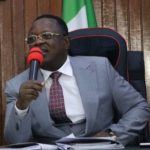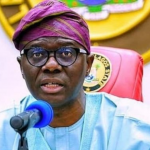Nigeria is currently facing a major educational crisis, with a significant shortfall in teaching staff across the country.
More than 31.7 million pupils in primary schools are being taught by just over 915,000 teachers, highlighting a widening gap between student needs and teacher availability.
New data from the Universal Basic Education Commission reveals that there are 131,377 registered primary schools nationwide, almost evenly split between public (65,529) and private (65,848) institutions. Of the total enrolment, 24.2 million pupils are in public schools, while 7.4 million attend private schools.
Despite the massive learner population, teacher recruitment has stagnated in many areas. Between 2019 and 2024, 18 states reportedly failed to employ any new teachers. At the same time, teachers across the country continue to struggle with inadequate pay and challenging working conditions. In the Federal Capital Territory, teachers recently went on strike to protest the non-implementation of the new minimum wage approved in 2024 by President Bola Tinubu.
Experts are raising the alarm over the growing imbalance between teacher numbers and pupil enrolment, warning that it could have long-term implications for education quality, especially in underserved areas.
“With the rising number of school-aged children and increasing establishment of schools nationwide, our education system faces a serious challenge. The dearth of qualified teachers affects the quality of instruction and overall student performance,” said Professor Josiah Ajiboye, former Registrar of the Teachers Registration Council of Nigeria.
He further emphasized the difficulties posed by overcrowded classrooms, noting that teachers are often unable to offer the individual attention needed to maintain effective teaching standards.
Titus Amba, President of the Nigerian Union of Teachers, also described the situation as “alarming.”
“In several schools, especially in rural areas, there are only one or two teachers available to manage entire schools. This has created a situation of learning poverty, where children are attending school but not acquiring meaningful knowledge,” Amba stated.
He urged all tiers of government—federal, state, and local—to urgently prioritize teacher recruitment and retention.
“We need to take decisive steps to invest in teacher training, improve welfare, and create an enabling environment. Every child deserves access to a qualified teacher.”
Amba added that Nigeria must align with the global call to action for inclusive and adequately staffed education systems, to ensure that all children receive the quality education they deserve.











